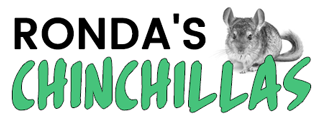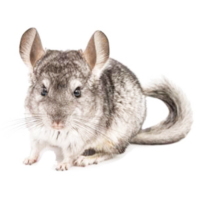FAQs
CHINCHILLA INFORMATION
It is good to keep a few large wood toys and perches available at all times to keep your pet’s teeth worn down. How many wood chews you to give is up to you, they will happily destroy as many as you can give them. We have a sampler box if you would like to try all the varieties. We find that Rabbits do better with the stick size and larger, while Degus and Chinchillas seem to prefer the twiglet size. For birds the twirlies last the longest, especially for larger super wood shreddi
That is a good question! We see a lot of every variety go out and it really depends on your pet’s individual preference and what his/her needs are. For those that need soft woods due to malocclusion or teeth abnormalities you will want to stick with willow, yucca or cholla. For extremely destructive chewers that Manzinita and coconut shells are a great choice and will hold up the longest.
Fresh spring apple and poplar can be very fuzzy which the chinchillas seem to love. It looks kind of scary so we have included a picture of it here.


This is normal if you flood a chinchilla’s digestive system with a new treat or food too quickly. Chinchillas come in many different sizes so if you have a petite chinchilla they should have no more than 1/4tsp of treats or suppliments per day. If you have a big chinchilla they can have as much as 1tsp. Some never get squishy poo, and some have very sensitive stomachs. If your chinchilla does get diarrhea or wet poop, give them only their regular food, hay and water. They will usually clear up in 24-48 hours.
If it persists after that time you can pull the food and give only alfalfa or timothy hay for 24 hours and see what happens. It may be that your food went bad or you got a bad batch (rare). If it continues to persist they may have something more serious like giardia and need to see a vet. Giardia comes from contaminated water sources so you may need to treat your drinking water too!
This varies depending on the age of your chinchilla, it’s size and preferences. For chinchillas under 4 months of age we don’t recommend feeding anything but herbs, food and hay. It is extremely important that baby chinchillas get the nutrients they need from food so they grow properly.
After 4 months you can introduce very tiny amounts of papaya once a week or so. Once a chinchilla hits a year old/adulthood you can try giving them anything you like, we have found they won’t over indulge on the treats vs. regular food like a baby will.
There is no such thing as too much dust, you can put as much as you like in the chinchilla’s dust bath house or bowl. Because some chinchillas like to poo and pee in there we recommend using 1/4 cup at the beginning of the week and to dump it at the end.
It is recommended to take the dust container out after an hour. You can dust your chinchilla as often as daily but most dust 2-3 times per week. If you notice your chinchilla’s ears or feet are getting too dry it is ok to change to once a week. Chinchillas also love the blue cloud chew rocks and if given one will use it to dust themselvs regularly.
Chinchilla collars are used to keep females from fighting when they live in breeding cages. A male will have an access tunnel behind each female chinchilla’s cage and the collars keep them from entering the tunnel.
SHOPPING INFORMATION
Orders =< $25.00
Shipping is $8.05
$25.01 – $80.00
Shipping is $14.15
Orders > $80.01
Shipping is $10.50 in the United States.
Shipping outside of the United States requires additional shipping costs.

